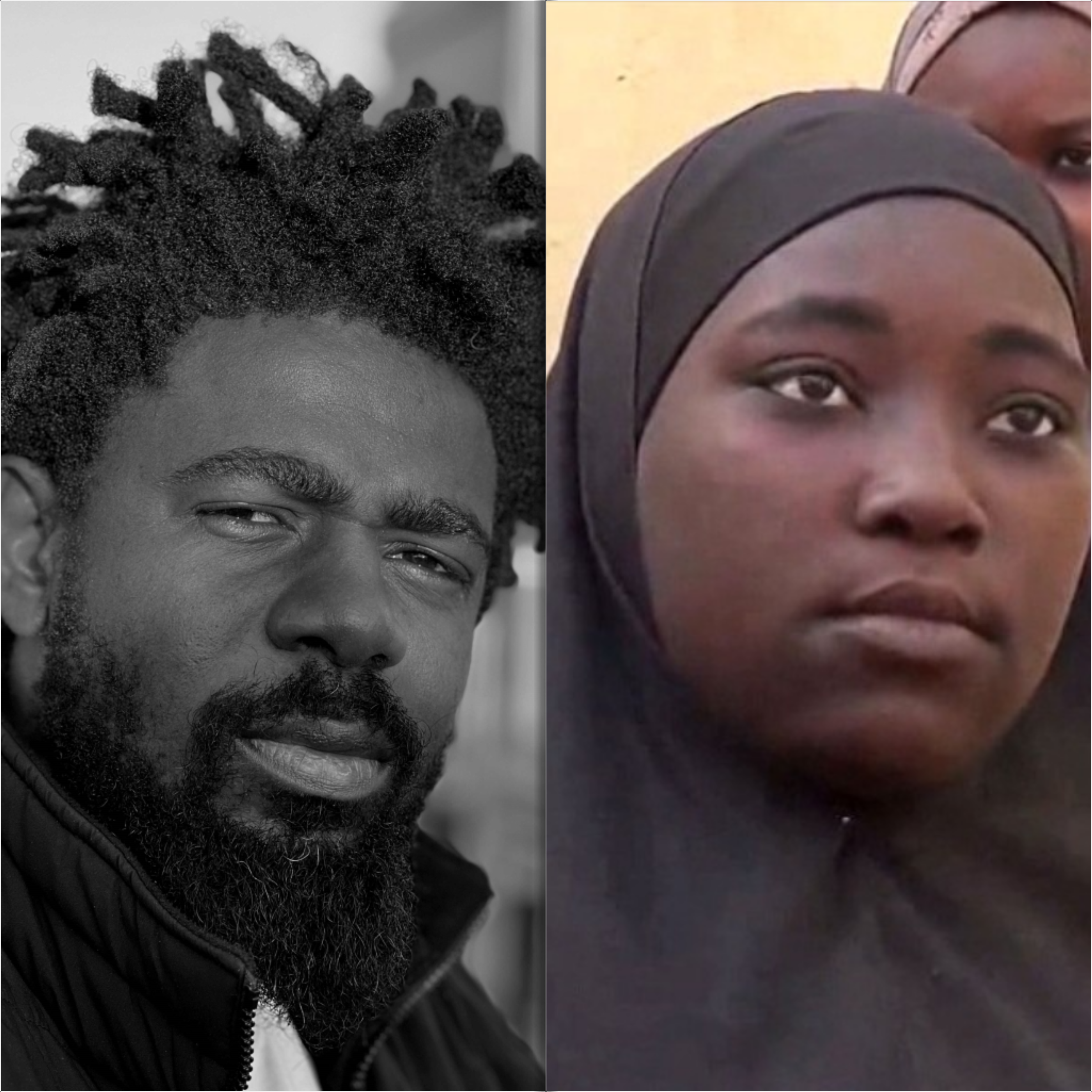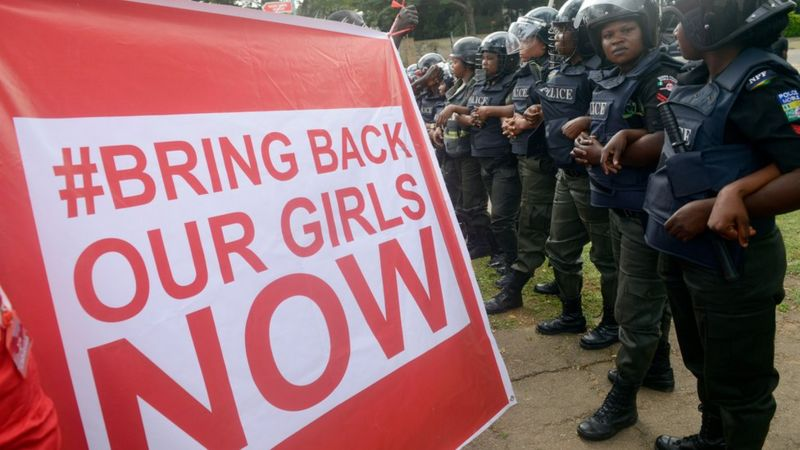Mothers of Chibok Documentary: A Powerful Account of Resilience and the Fight for Justice
Quote from Oladosun Joshua Segun on November 17, 2024, 9:51 PM
The heartbreaking story of the Chibok schoolgirls continues to ring in the ears of many. In April 2014, 276 girls were taken from their school in Chibok, Nigeria, by the militant group Boko Haram. This act shocked the world and sparked a global movement. Now, a new documentary titled Mothers of Chibok, directed by the award-winning Nigerian filmmaker Joel ‘Kachi Benson, dives deep into the ongoing struggle of the mothers seeking justice and the return of their daughters. This film shines a light on their relentless fight, showcasing their strength and determination.
The film is scheduled for screenings, both in-person and online, between November 16 and November 20 at Village East by Angelika in New York City before embarking on a home tour in Nigeria. The kidnapping of the Chibok girls was not just a local tragedy; it was a global wake-up call.
A total of 276 girls were abducted that night, with many still unaccounted for today. The kidnapping drew international attention, leading to campaigns like #BringBackOurGirls.
Each mother’s story is filled with sorrow and unyielding Hope.
- Individual Stories: From diverse backgrounds, the mothers each have unique experiences and struggles. Some lost multiple daughters, while others continue to search for lost friends.
- Emotional Toll: The psychological burden weighs heavily. Many mothers live with anxiety and fear, never knowing what happened to their children.
- The Strength of Faith: Through it all, faith remains a beacon. Many mothers turn to prayer, holding onto hope that their daughters will return.
According to Kachi, the project focuses on the underreported lives of these mothers, who continue to persevere despite their heart-wrenching loss. “For the past decade, the world has been telling the same story of Chibok—one of tragedy, loss, and victimhood. But I’ve witnessed something greater, something the media has overlooked,” he articulated.
“These women are not just survivors; they are heroines. They have not forgotten their daughters, but they’ve continued living, finding moments of joy, laughter, and purpose. Joel ‘Kachi Benson the filmmaker said he spent the last five years deeply immersed in the lives of the Chibok families, sharing meals, visiting their farms, and listening closely to their stories.
“I’ve eaten with them in their homes, played with their children, and gone with them to till their farms,” he narrated. “Above all, I’ve listened to their stories – the ones they’ve told me, and those I overhear in passing conversations. And what I’ve learned is that the women of Chibok are more than the tragedy that is mainly used to describe them.”
‘Mothers of Chibok’ is a follow up to Benson’s groundbreaking virtual reality film ‘Daughters of Chibok,’ which earned him the prestigious Best Immersive Story award at the 76th Venice International Film Festival, making him the first African filmmaker to win in that category.
Joel Kachi Benson’s vision brings these stories to life, giving voice to the voiceless.
- Director's Vision: Benson aims to capture the raw emotion and determination of these mothers. His focus on authenticity allows viewers to connect deeply with their stories.
- Visual Storytelling: The film employs powerful imagery and interviews, blending personal accounts with archival footage, creating an immersive experience.
- Emotional Resonance: Mothers of Chibok has the ability to touch hearts, making viewers reflect on resilience in the face of adversity.
- Government Response: The Nigerian government has faced criticism for its slow response. While some girls have been rescued, many remain missing.
- International Advocacy: Global organizations like Amnesty International and various activists continue to support the mothers, helping them keep their cause alive.
- Raising Awareness: Sharing the documentary and its message on social media can help keep the story alive. Awareness is key to action.
- Amplifying Their Voices: The release of Mothers of Chibok provides a platform. Every viewer can contribute by discussing these issues and sending letters to local representatives.
Mothers of Chibok is not just a documentary; it’s a powerful call to action. The emotional stories and the ongoing fight for justice create a narrative that demands attention.
We must continue to support these mothers and advocate for their daughters. The legacy of this documentary will live on as long as we remember what happened in Chibok and stand firm in fighting for justice. Let’s take this opportunity to amplify their voices and ensure that the stories of the Chibok girls are never forgotten.

The heartbreaking story of the Chibok schoolgirls continues to ring in the ears of many. In April 2014, 276 girls were taken from their school in Chibok, Nigeria, by the militant group Boko Haram. This act shocked the world and sparked a global movement. Now, a new documentary titled Mothers of Chibok, directed by the award-winning Nigerian filmmaker Joel ‘Kachi Benson, dives deep into the ongoing struggle of the mothers seeking justice and the return of their daughters. This film shines a light on their relentless fight, showcasing their strength and determination.
The film is scheduled for screenings, both in-person and online, between November 16 and November 20 at Village East by Angelika in New York City before embarking on a home tour in Nigeria. The kidnapping of the Chibok girls was not just a local tragedy; it was a global wake-up call.
A total of 276 girls were abducted that night, with many still unaccounted for today. The kidnapping drew international attention, leading to campaigns like #BringBackOurGirls.
Tekedia Mini-MBA edition 16 (Feb 10 – May 3, 2025) opens registrations; register today for early bird discounts.
Tekedia AI in Business Masterclass opens registrations here.
Join Tekedia Capital Syndicate and invest in Africa’s finest startups here.

Each mother’s story is filled with sorrow and unyielding Hope.
- Individual Stories: From diverse backgrounds, the mothers each have unique experiences and struggles. Some lost multiple daughters, while others continue to search for lost friends.
- Emotional Toll: The psychological burden weighs heavily. Many mothers live with anxiety and fear, never knowing what happened to their children.
- The Strength of Faith: Through it all, faith remains a beacon. Many mothers turn to prayer, holding onto hope that their daughters will return.
According to Kachi, the project focuses on the underreported lives of these mothers, who continue to persevere despite their heart-wrenching loss. “For the past decade, the world has been telling the same story of Chibok—one of tragedy, loss, and victimhood. But I’ve witnessed something greater, something the media has overlooked,” he articulated.

“These women are not just survivors; they are heroines. They have not forgotten their daughters, but they’ve continued living, finding moments of joy, laughter, and purpose. Joel ‘Kachi Benson the filmmaker said he spent the last five years deeply immersed in the lives of the Chibok families, sharing meals, visiting their farms, and listening closely to their stories.
“I’ve eaten with them in their homes, played with their children, and gone with them to till their farms,” he narrated. “Above all, I’ve listened to their stories – the ones they’ve told me, and those I overhear in passing conversations. And what I’ve learned is that the women of Chibok are more than the tragedy that is mainly used to describe them.”

‘Mothers of Chibok’ is a follow up to Benson’s groundbreaking virtual reality film ‘Daughters of Chibok,’ which earned him the prestigious Best Immersive Story award at the 76th Venice International Film Festival, making him the first African filmmaker to win in that category.
Joel Kachi Benson’s vision brings these stories to life, giving voice to the voiceless.
- Director's Vision: Benson aims to capture the raw emotion and determination of these mothers. His focus on authenticity allows viewers to connect deeply with their stories.
- Visual Storytelling: The film employs powerful imagery and interviews, blending personal accounts with archival footage, creating an immersive experience.
- Emotional Resonance: Mothers of Chibok has the ability to touch hearts, making viewers reflect on resilience in the face of adversity.
- Government Response: The Nigerian government has faced criticism for its slow response. While some girls have been rescued, many remain missing.
- International Advocacy: Global organizations like Amnesty International and various activists continue to support the mothers, helping them keep their cause alive.
- Raising Awareness: Sharing the documentary and its message on social media can help keep the story alive. Awareness is key to action.
- Amplifying Their Voices: The release of Mothers of Chibok provides a platform. Every viewer can contribute by discussing these issues and sending letters to local representatives.
Mothers of Chibok is not just a documentary; it’s a powerful call to action. The emotional stories and the ongoing fight for justice create a narrative that demands attention.

We must continue to support these mothers and advocate for their daughters. The legacy of this documentary will live on as long as we remember what happened in Chibok and stand firm in fighting for justice. Let’s take this opportunity to amplify their voices and ensure that the stories of the Chibok girls are never forgotten.
Uploaded files:


